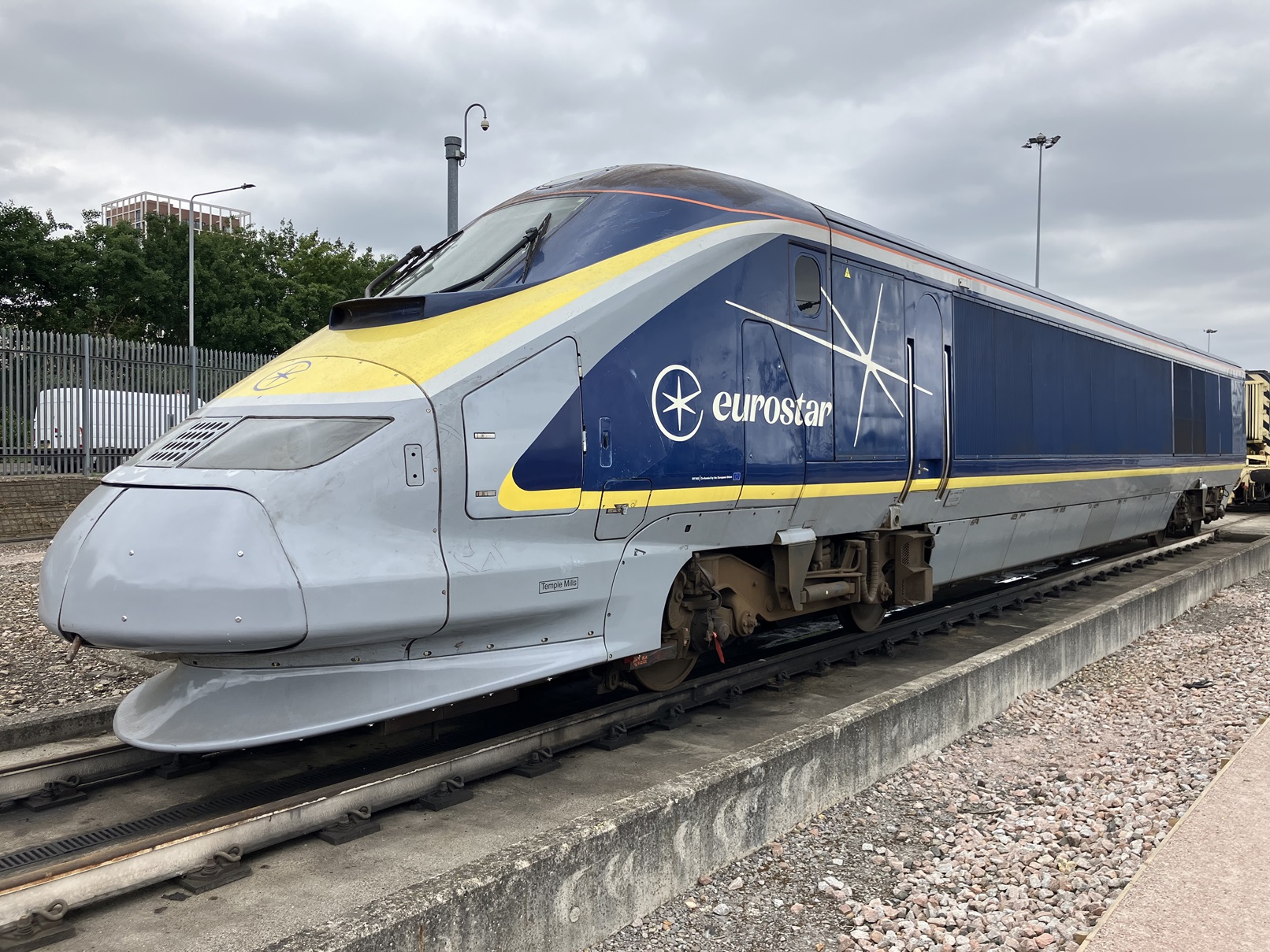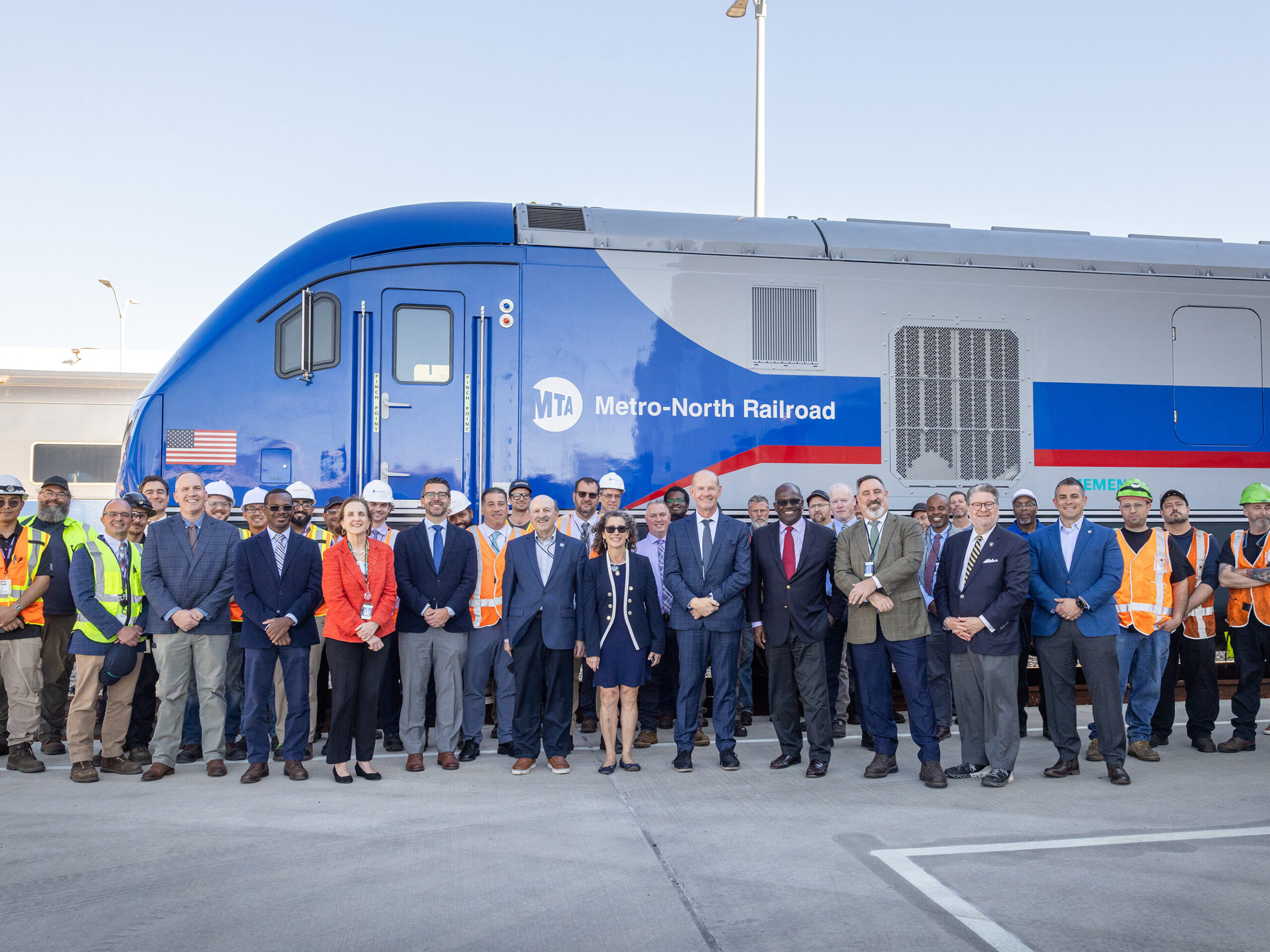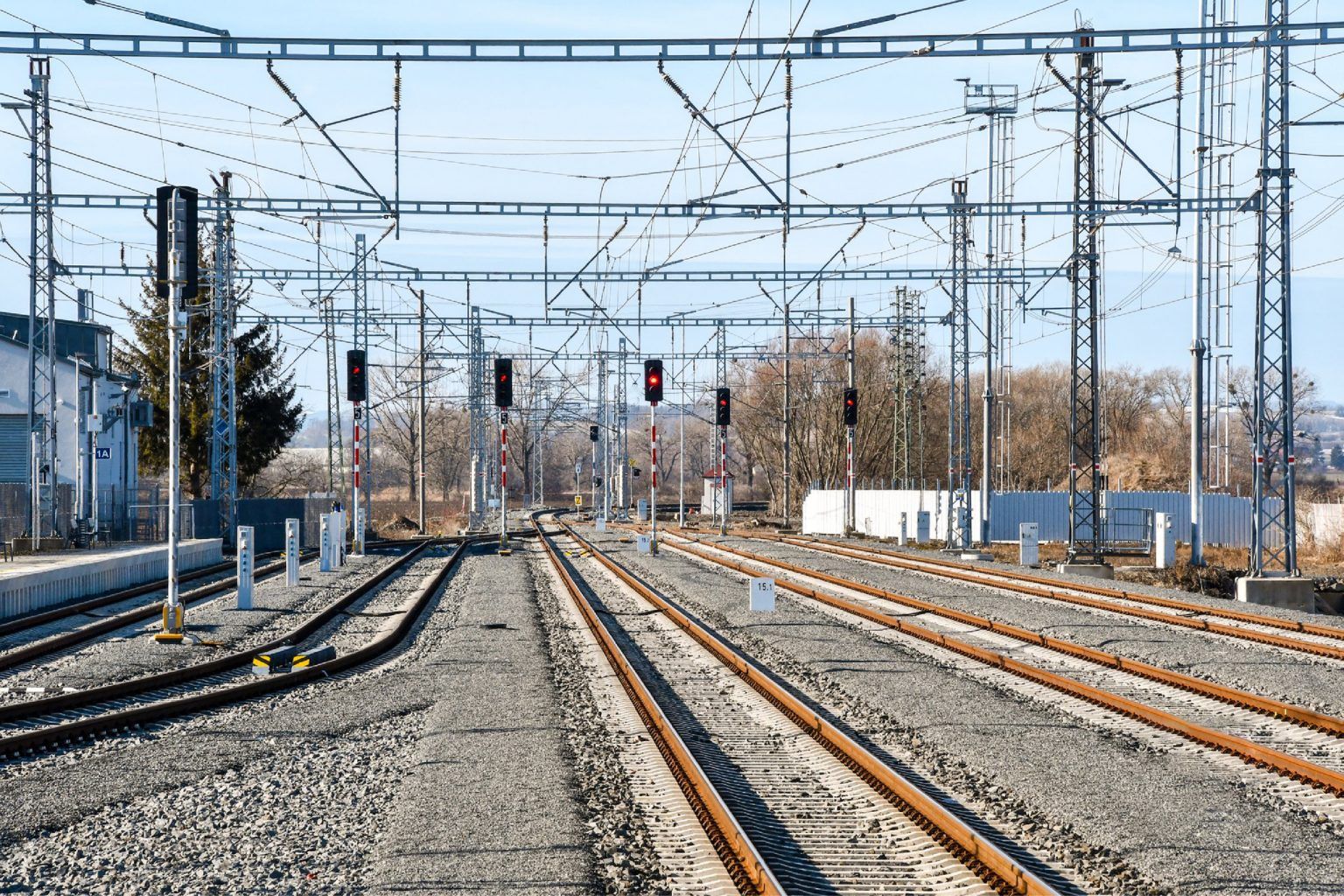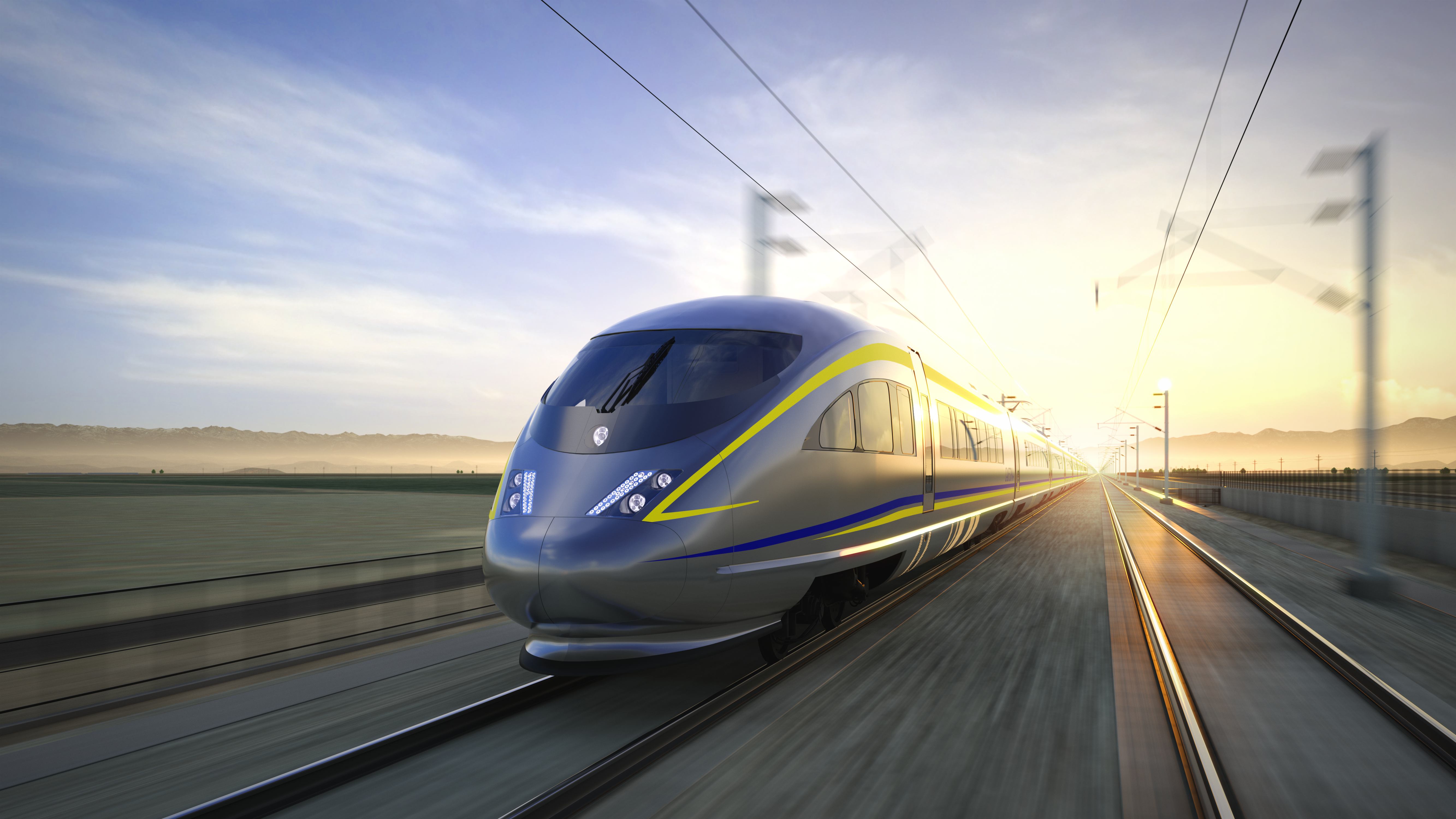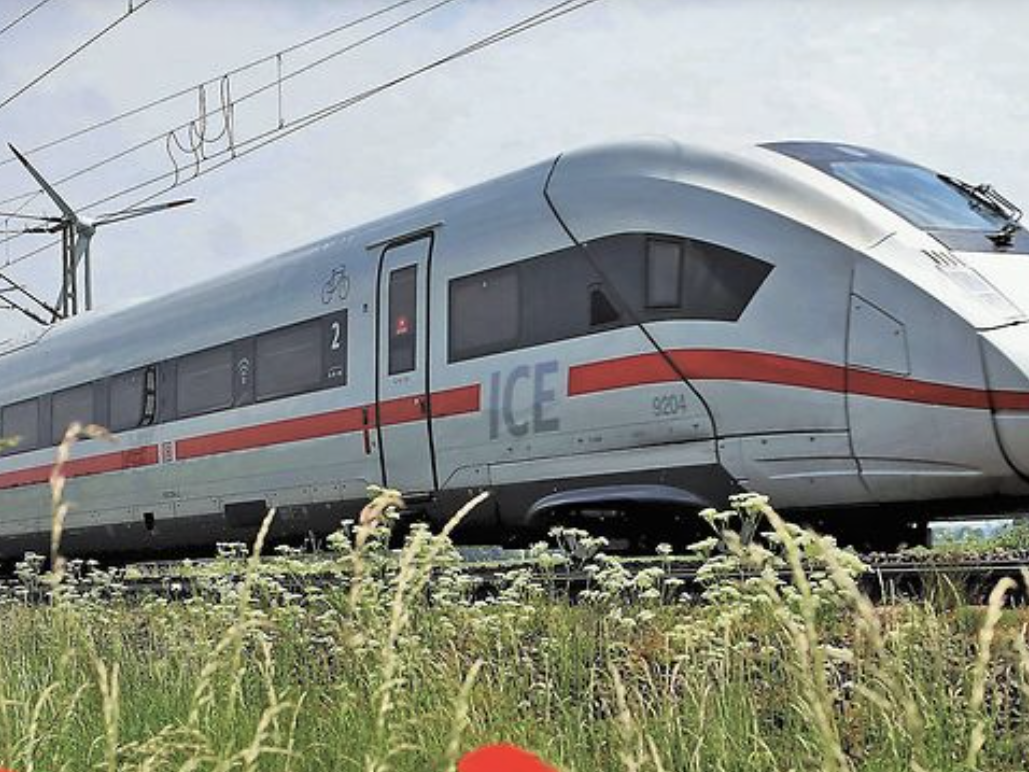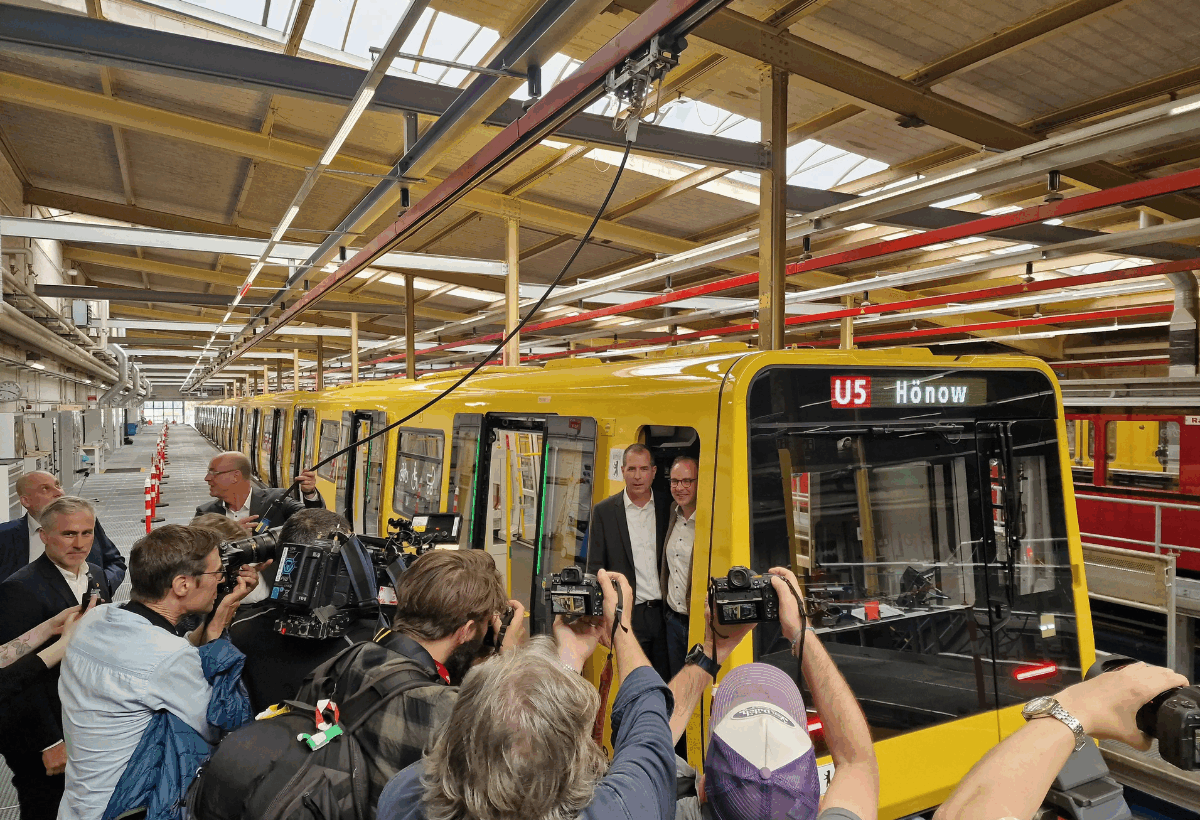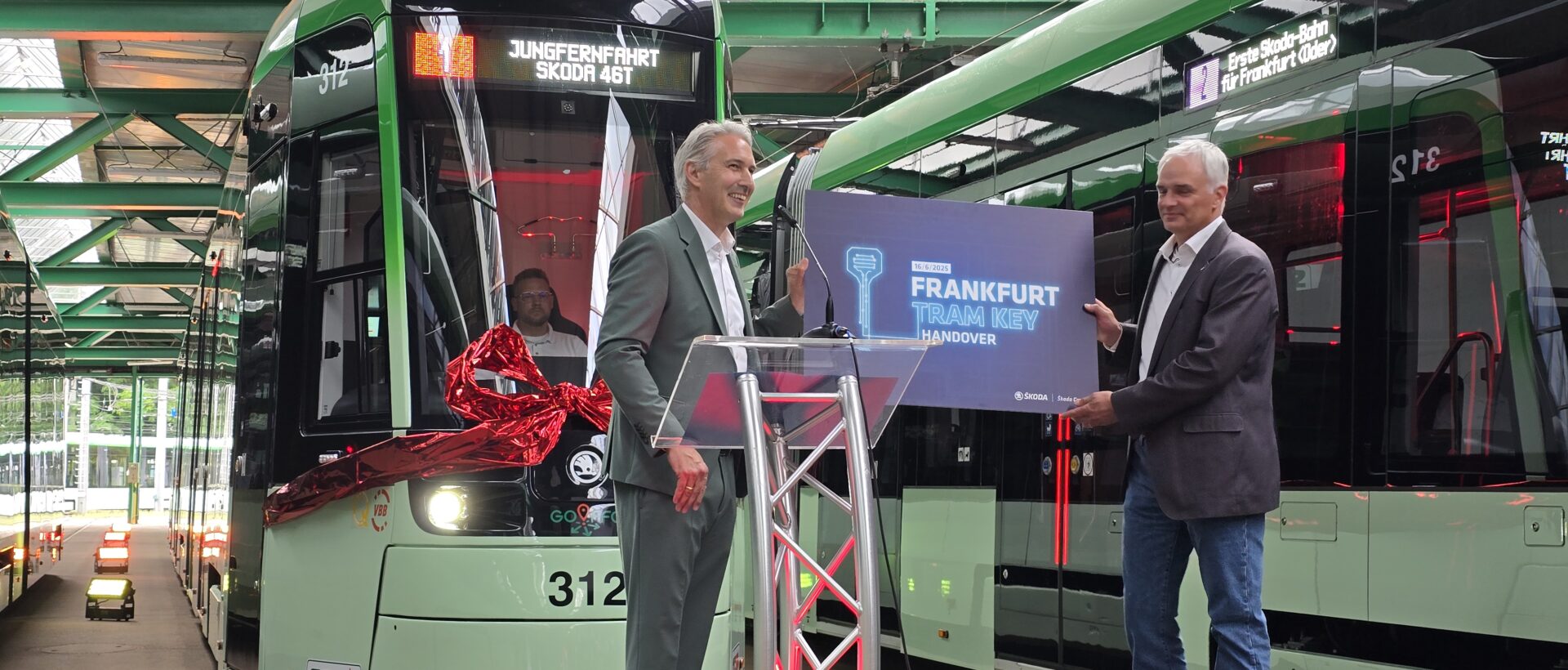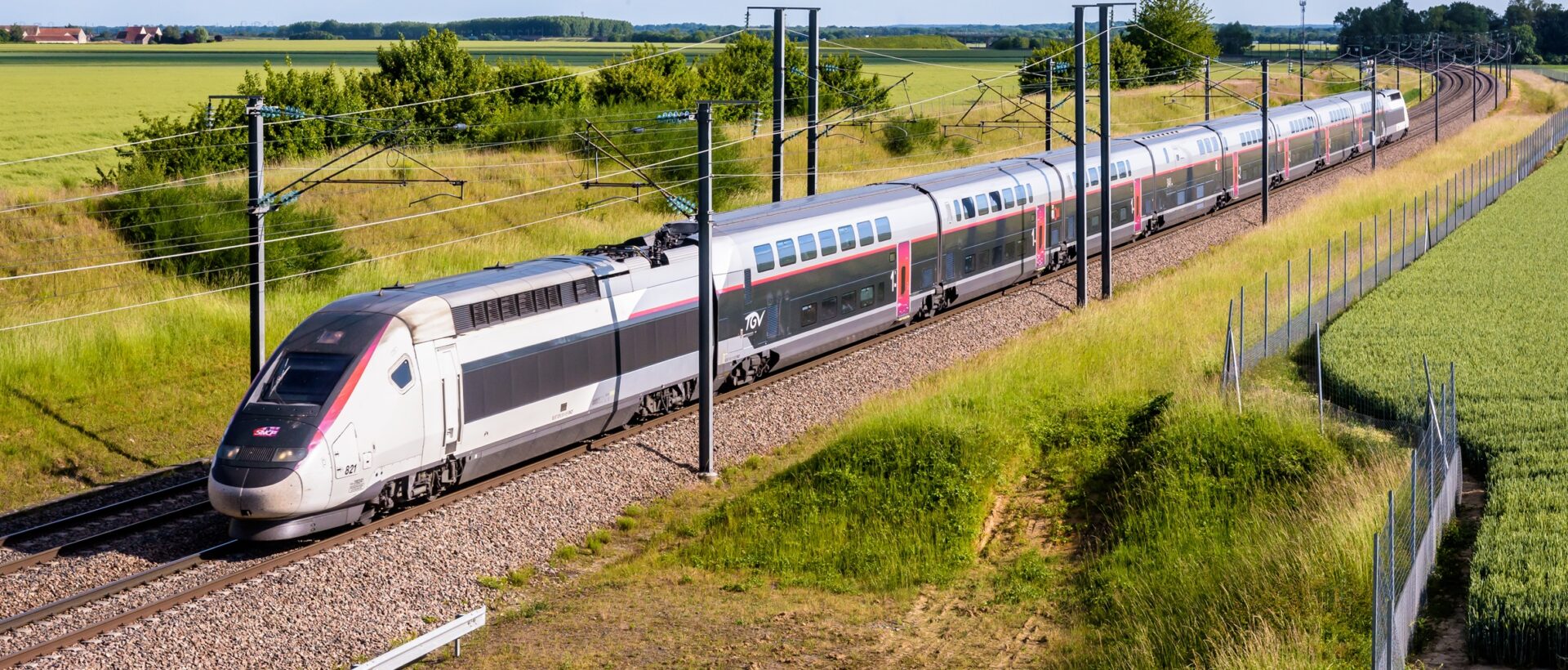A Deutsche Bahn (DB) ICE test train has reached a top speed of 405 km/h during trials on the Erfurt–Leipzig/Halle high-speed railway.
Conducted in collaboration with Siemens Mobility, the tests are part of ongoing efforts to collect technical data for the development of future high-speed rail services and the maintenance of key infrastructure.
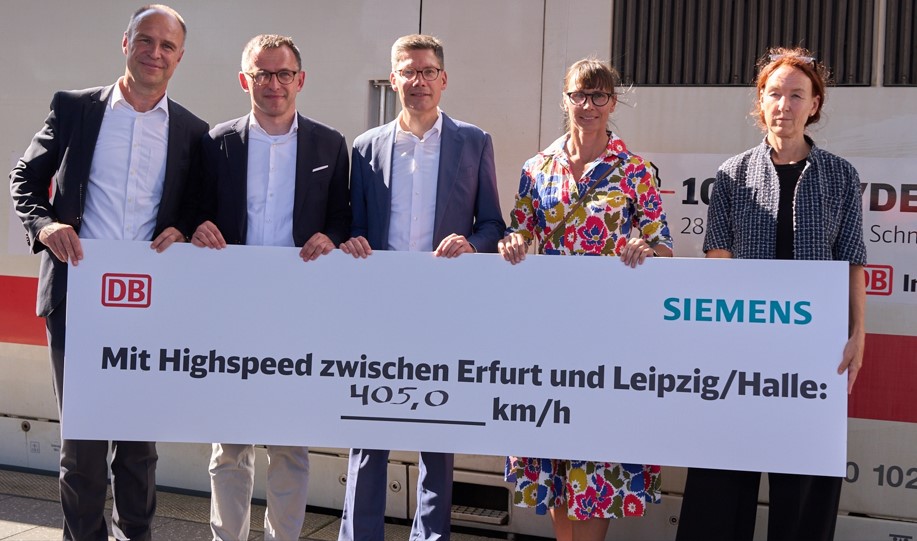
The test runs, carried out using DB Systemtechnik’s ICE-S measurement train and Siemens Mobility’s Velaro Novo test car, were held on a section of track that forms part of the German Unity Transport Project No. 8. Although designed for regular service speeds of up to 300 km/h, the line was able to support the significantly higher test speeds without requiring physical modifications.
Dr. Philipp Nagl, CEO of DB InfraGO AG said:An ICE train has travelled faster than ever before on the Erfurt–Leipzig/Halle line. 405.0 km/h, the new record, is also a testament to the performance of the infrastructure on this high-speed line: After 10 years of continuous operation, we can travel at such high speeds without any problems and without any adjustments. It is confirmation that infrastructure investments are the foundation for reliable, sustainable, and efficient mobility and logistics for generations to come. The test runs provide us with important insights for the renovation and maintenance of high-speed lines as well as the technical development of high-speed trains, thus also benefiting passengers.
High-speed test runs such as this are uncommon on the German network and are conducted under controlled conditions. The recent tests focused on areas including acoustics, aerodynamics, and vehicle-track interaction.
Thomas Graetz, Vice President for High Speed and Intercity Trains at Siemens Mobility said:The successful test runs of our Velaro Novo test car, which reached a speed of 405.0 km/h today, impressively demonstrate the performance of our latest generation of high-speed trains. Our goal was to gain in-depth insights into acoustics, aerodynamics, and driving behavior at extreme speeds – we achieved this goal today thanks to the excellent cooperation with DB InfraGO AG and DB Systemtechnik. The Velaro Novo will revolutionise rail transport technology by setting new standards for capacity, cost-effectiveness, and efficiency. Such innovations are the key to sustainable and future-oriented mobility.
The test used a Velaro Novo car that is designed to offer lower energy consumption and increased seating capacity compared to its predecessors, while also allowing for future modifications depending on operator requirements.
Meanwhile, the ICE-S train used during testing is equipped with an array of sensors and diagnostic tools.
In addition to gathering data on train performance, the trials are also contributing to maintenance planning. The Erfurt–Leipzig/Halle route is currently closed for scheduled work, including the installation of low-maintenance bridge components. This temporary closure is expected to conclude by mid-July, with rail services being diverted in the meantime.
Dr. Hiie-Mai Unger, CEO of DB Systemtechnik said:Driving forward innovations and successfully positioning rail traffic for the future – we at DB Systemtechnik are making an important contribution to this with our test runs. With our high-speed test train, the ICE-S, we were able to gather a great deal of important information today, including on acoustics, aerodynamics, driving behavior, and the interaction between train and rail at very high speeds. These findings will help us with future line renovations and in further optimising rail operations, especially high-speed rail.
Germany’s high-speed ICE services typically operate at a maximum speed of 300 km/h. Lines such as Berlin–Munich and Cologne–Frankfurt are among those designed for regular high-speed operation, with infrastructure adapted to accommodate such travel conditions.
The recent trials represent part of a broader strategy to ensure that Germany’s high-speed rail network continues to meet evolving technical and operational demands.

















